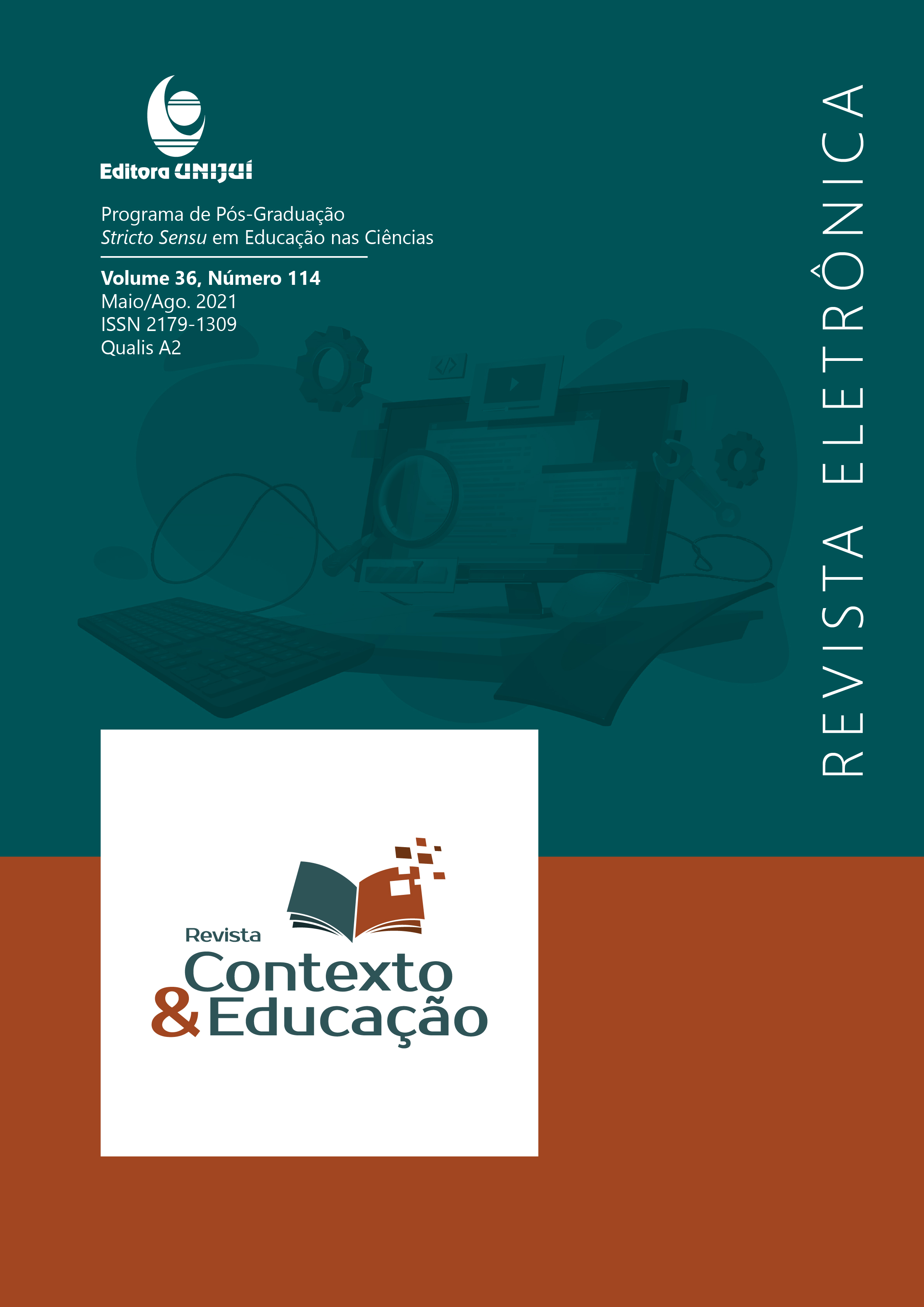O USO DA ROBÓTICA NO ENSINO DE LÓGICA COMPUTACIONAL: UMA PROPOSTA PARA AS SÉRIES INICIAIS
THE USE OF ROBOTICS ON THE TEACHING OF COMPUTATIONAL LOGIC: A PROPOSAL TO THE BEGINNING GRADES
DOI:
https://doi.org/10.21527/2179-1309.2021.114.131-145Keywords:
Computational Thinking, Educational Technology, Robotics in EducationAbstract
The Internet of Things is a strong tendency in the contemporary and technological society. That said, the knowledge of computation concepts becomes a requisite to qualify citizens to the concept of the society of information. The stimulus of the logic-abstract thinking by means of processing and problem solving, while approaching the Computational Thinking concept, are essential paths to reach said goal. Thus, the present work describes a research that manufactured a robotic device and developed a mobile application utilizing the Arduino microcontroller and the AppInventor software, associated to a didactic sequence to introduce concepts of Computational Thinking. The main goal by utilizing those devices was to verify its unrolling alongside children in literacy age, by adopting the educational methodology of the educational robotics by the means of mobile devices. During its realization, it was possible to observe signs that the children that participated were able to reasonably deal with abstract questions as from this work’s proposed activities. It was also possible to conclude that actions like this demonstrate that the insertion of the Computational Thinking associated with ludic activities since the first scholar years is conceivable.
Downloads
Published
How to Cite
Issue
Section
License
By publishing in Revista Contexto & Educação, authors agree to the following terms:
All works are published under the Creative Commons Attribution 4.0 International License (CC BY 4.0), which allows:
Sharing — to copy and redistribute the material in any medium or format;
Adaptation — to remix, transform, and build upon the material for any purpose, even commercially.
These permissions are irrevocable, provided that the following terms are respected:
Attribution — authors must be properly credited, a link to the license must be provided, and any changes made must be indicated.
No additional restrictions — no legal or technological measures may be applied that legally restrict others from doing anything the license permits.
Notices:
The license does not apply to elements that are in the public domain or covered by legal exceptions.
The license does not grant all necessary rights for specific uses (e.g., image rights, privacy, or moral rights).
The journal is not responsible for the opinions expressed in the articles, which are the sole responsibility of the authors. The Editor, with the support of the Editorial Board, reserves the right to suggest or request modifications when necessary.
Only original scientific articles presenting research results of interest that have not been previously published or simultaneously submitted to another journal with the same purpose will be accepted.
Mentions of trademarks or specific products are intended solely for identification purposes and do not imply any promotional relationship by the authors or the journal.
License Agreement (for articles published from October 2025): Authors retain the copyright to their article and grant Revista Contexto & Educação the right of first publication.


